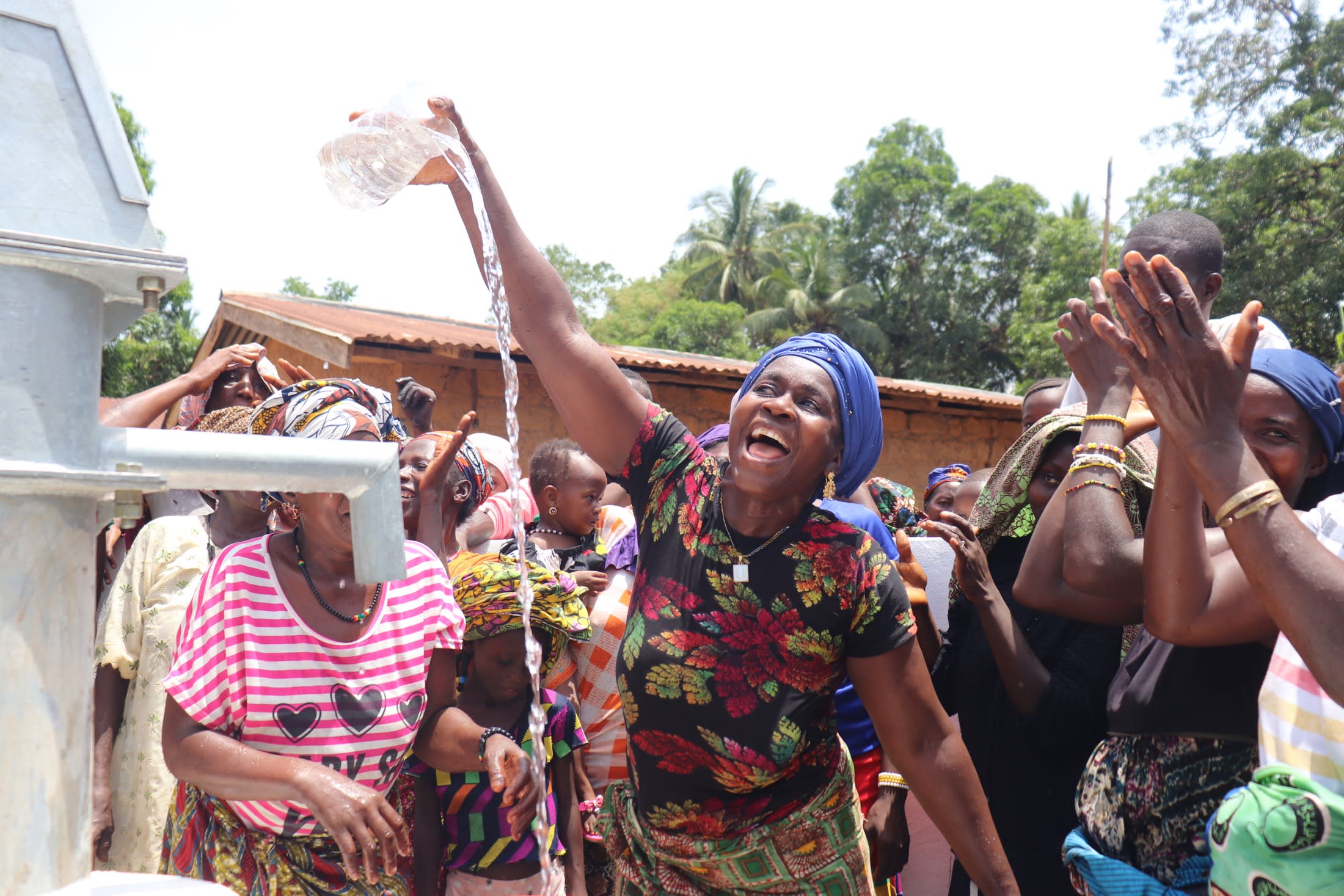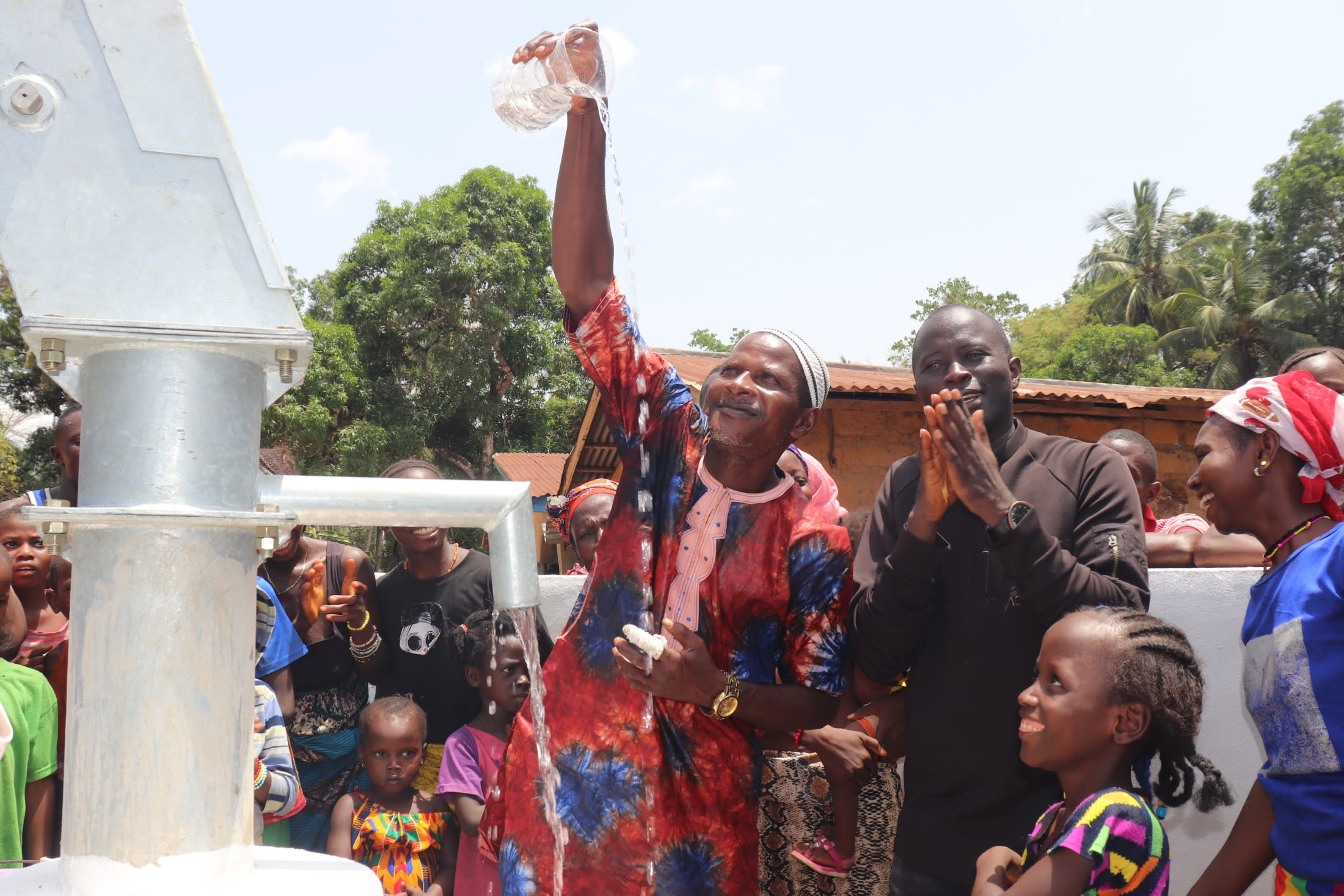Many children in Masheka die before the age of five. Looking at where their mothers get water from every day, this fact is nearly as unsurprising as it is unfortunate.
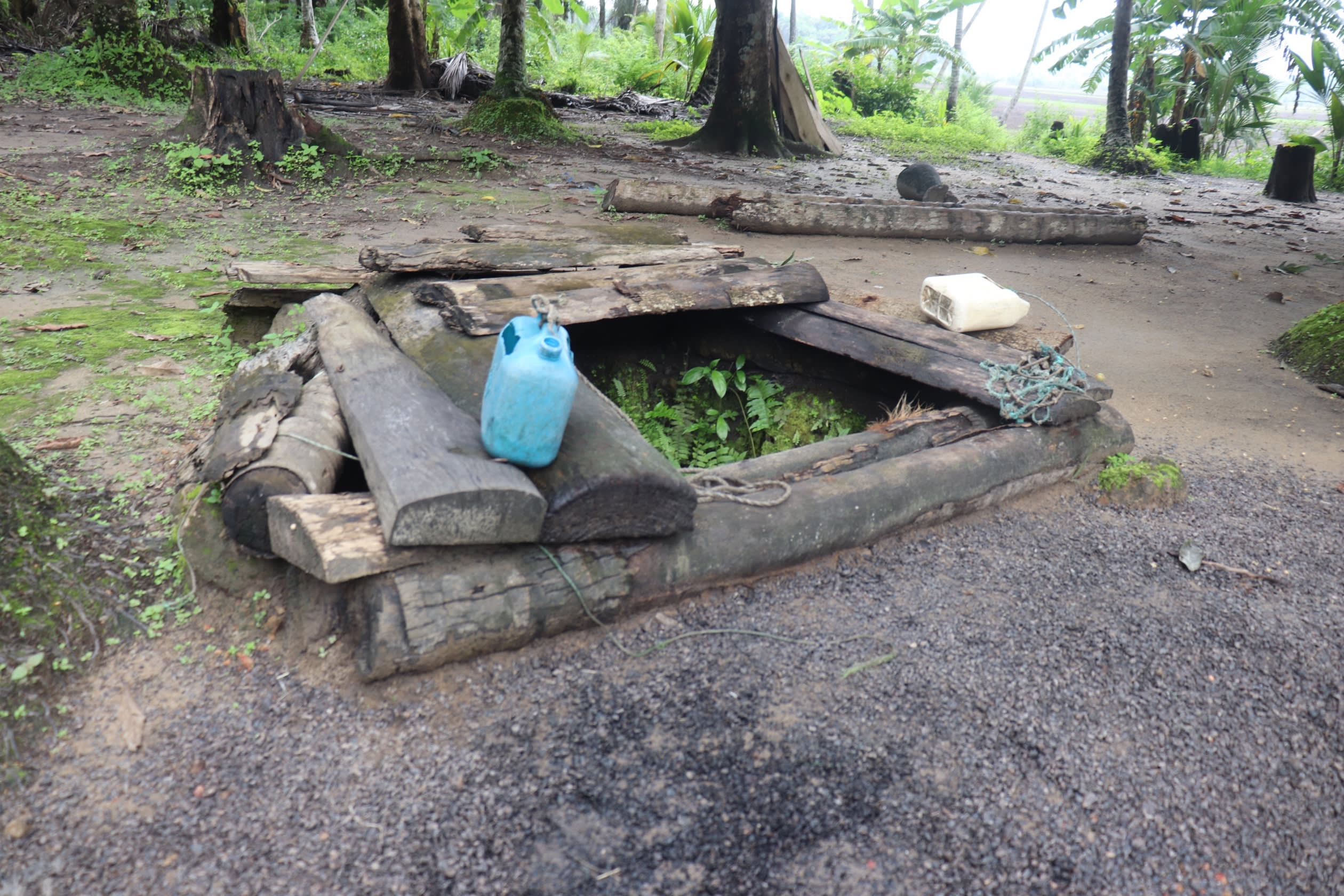
The village had a functioning well with a pump until the 1990s, but the pump was stolen from the village during Sierra Leone's civil wars. Since then, this hand-dug well in the swamp has been their only source of water. Although the hand-dug well never dries, it is far from protected.
The reported health consequences of drinking this water are seemingly endless. Not only are Masheka's people stricken with typhoid, cholera, dysentery, diarrhea, and skin rashes, but they also have a high chance of being affected by the fertilizer used by closeby farms, which has been known to cause cancer. Cancer cases are rising slowly in Sierra Leone, with most people too poor to get proper medical examinations.
While the health implications of drinking this water are the worst thing about it, it isn't the only problem. Most people in Masheka need to travel at least a half-hour to get water each trip, with some having to travel an hour.
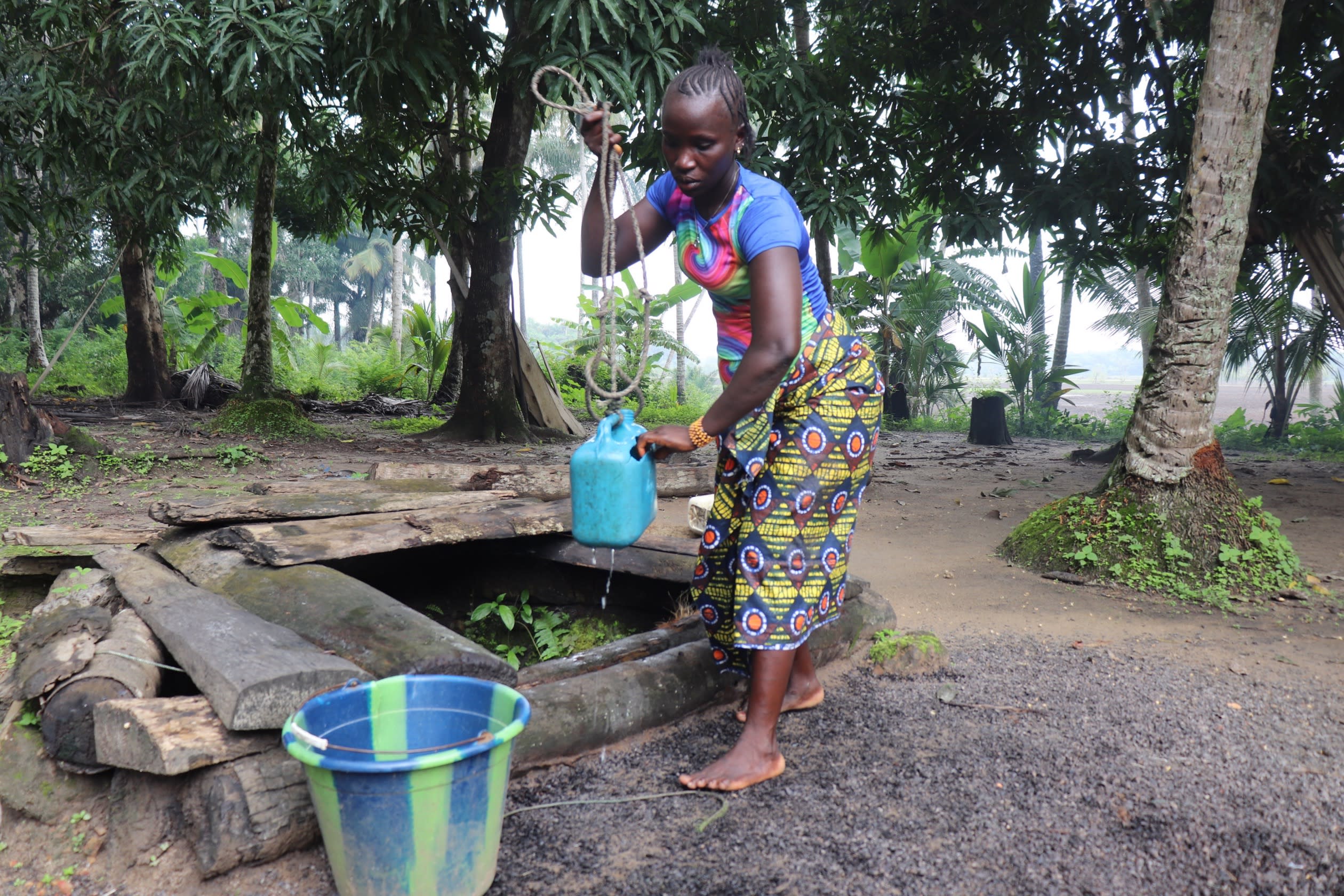
"Imagine carrying a heavy bucket of water, a child on my back, and the other holding on to my hand," said Aminata Kamara, 24. "This is a routine I go through about ten times per day. Very exhausting. I feel the pain in my neck and back."
16-year-old Isatu is already married, with a one-year-old son. "Going to fetch water, I have to go with my child. One day, I left my son sleeping in my room and quickly went to fetch water. By the time I returned, he was crying badly. My husband was standing by the door waiting for me to return. I was greeted with a slap so hard I saw a flash. I will never leave my child unattended again, but walking that long distance is a burden on me."
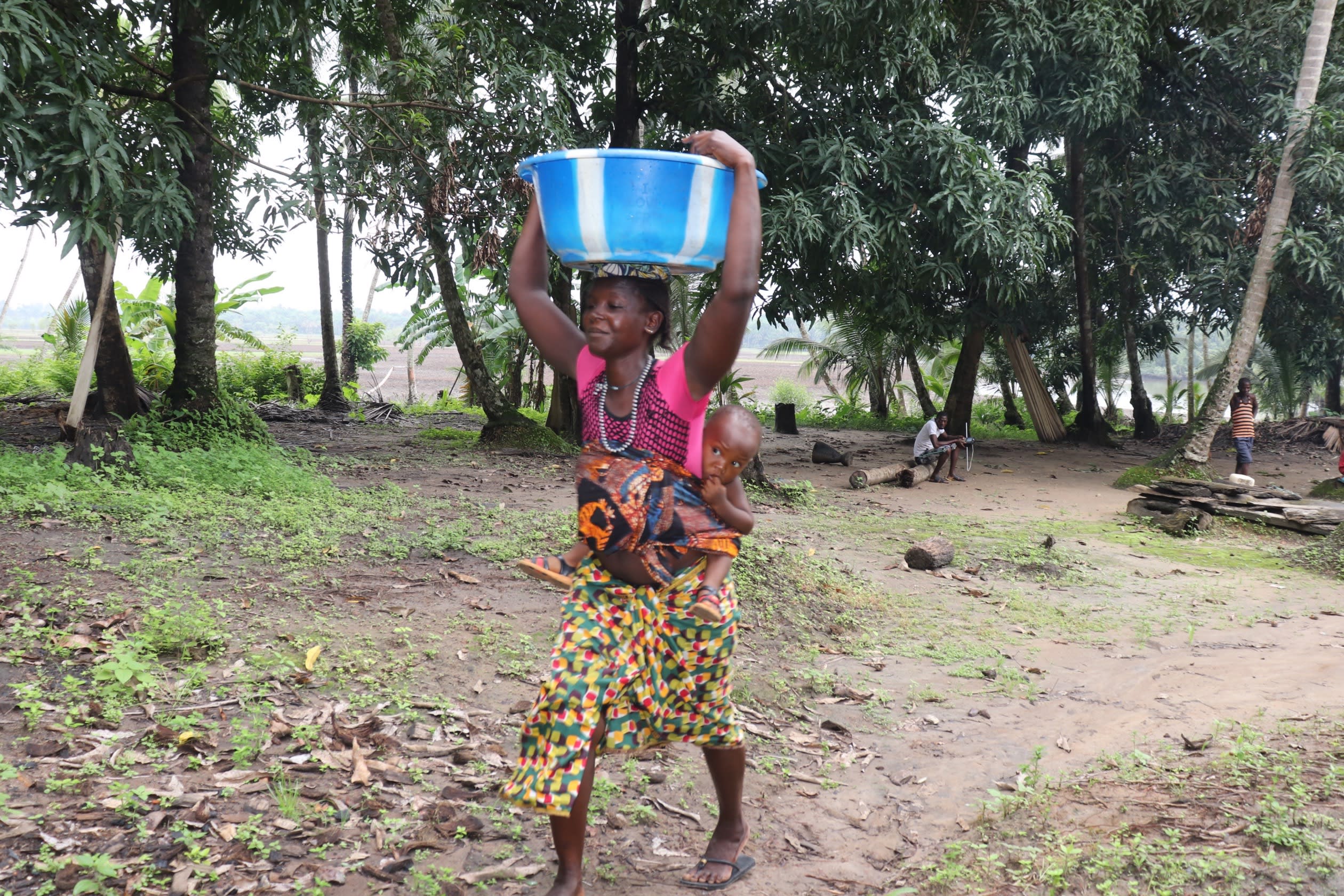
"Not having a well close to the house is a big problem for me and other people in the village," Isatu continued. "I can speak for every woman and girl when I say if we don't get help, things are going to get worse for us. Our husbands do not care what happens. All they know is, 'Where is the food?' and 'Where is the water to drink and bathe?'"
A rehabilitated well won't solve all of Aminata and Isatu's problems. However, it will be right in the center of the village, saving them time and energy. The water will be protected and monitored, lessening the likelihood of water-related disease for themselves and their children. With renewed energy and hope that things can change, who knows what their futures might hold?
Here’s what we’re going to do about it:
Well Rehabilitation
The well marked for this overhaul is dry for a few months every year and needs major work to supply adequate, clean water to the community year round. The pump will be removed, and a hand auger will be lowered inside and powered by a drill team. This hand auger will allow the team to drill several meters deeper to hit a sufficient water column that will ensure the well supplies water throughout all seasons.
As the team drills, casing will be installed, transforming the bottom of this hand-dug well into a borehole. PVC piping will connect this lower system directly to the pump, a construction that we know will also improve the quality of water.
Once this plan is implemented, everyone within the community will have access to safe drinking water in both quality and quantity, even through the dry months.
Hygiene and Sanitation Training
There will be hygiene and sanitation training sessions offered for three days in a row.
After our visit, the hygiene and sanitation trainer decided it would be best to teach community members how to build a tippy tap (a hand-washing station built with a jerrycan, string, and sticks). They will use these tippy taps for handwashing demonstrations, and will also teach about other tools like dish racks and the importance of properly penning in animals.
These trainings will also strengthen the water user committee that manages and maintains this well. They enforce proper behavior and report to us whenever they need our help solving a serious problem, like a pump breakdown.

 Borehole Well and Hand Pump
Borehole Well and Hand Pump













